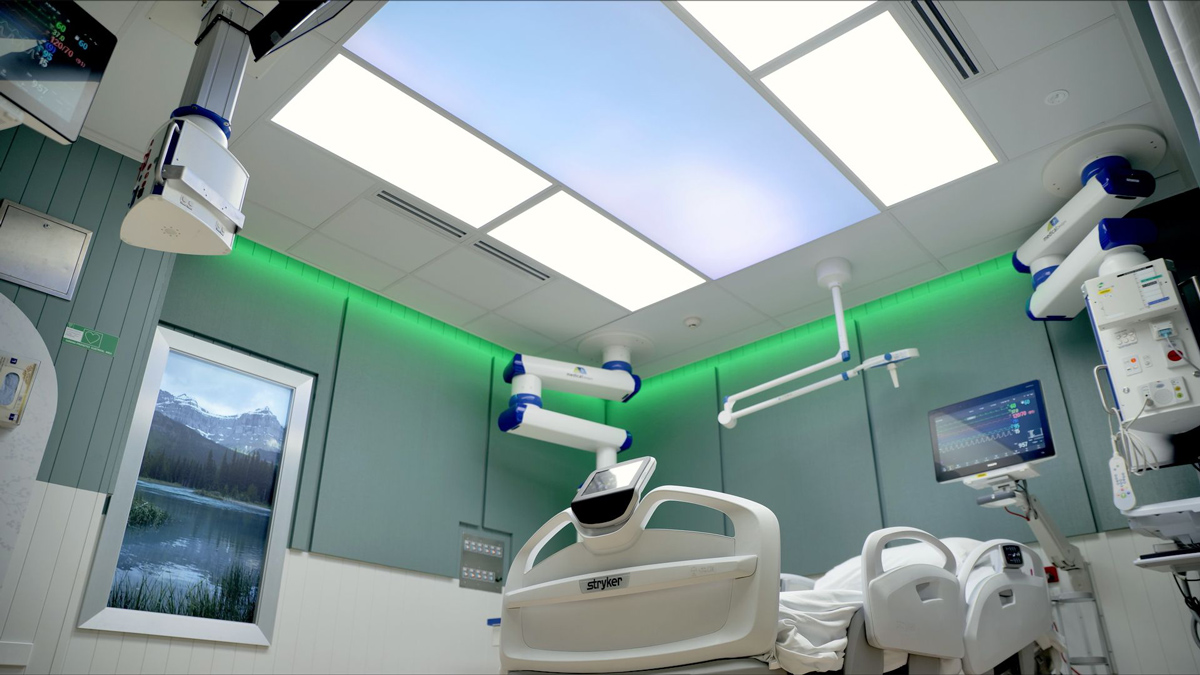- Foreword
- Message from Board Chair & Chief Executive
- 2023 Clinical Research Fellowships
- A message from the RBWH Foundation
- A message from The Common Good
- Metro North Research Excellence Awards
- Research stories
- ICU of the Future
- New approach ruling out pulmonary embolism
- Improving access to healthcare in the prison environment
- Safety and efficacy of peripheral versus centrally administered vasopressor infusion
- COVID-19 learnings set to inform future policy
- Telomere study could provide key to treating debilitating lung disease
- Productive Ward – Releasing time to care
- Brain organoids to revolutionise epilepsy treatment
- Reducing weight stigma in maternity care
- Parkinson’s Disease Check-In program giving people a voice
- Trial brings new treatment for common heart condition
- Teledentistry study shows promise in residential aged care
- Research fellow to boost Oral Health evidence-based care
- Study explores best approach to surgery for painful shoulder osteoarthritis
- The development and pilot testing of a stroke telerehabilitation decision toolkit
- Metro North Health delivers world-first breast scaffold surgery
- Regenerative jawbone hard at work care of collaborative Metro North Health approach
- Jamieson Trauma Institute leads e-scooter and e-bike injury research to drive community safety
- Forgotten fathers in pregnancy and obstetrics
- Putting the Spotlight on nursing and midwifery research
- Improving the health self-efficacy of stroke survivors
ICU of the Future
Researchers at The Prince Charles Hospital (TPCH) have successfully undertaken a world-first project to redesign the Intensive Care Unit environment to be more patient-centric and recovery focussed.
The ICU of the Future project has seen researchers from the Critical Care Research Group (CCRG) at TPCH working with the clinicians from the Adult Intensive Care Service, and in partnership with Metro North Health and The Common Good for the last five years, to combat design and environmental challenges found to negatively impact patient outcomes and long-term recovery.
Intensive Care Units (ICUs) can be daunting places for patients and their families with up to 75 per cent of ICU patients globally experiencing physical, cognitive, or psychological problems such as anxiety, depression and PTSD after their ICU admission.
While the quality of care provided and survival rates in Australian ICUs are exceptional, the quality of a patient’s life post-discharge can be improved.
The ICU of the Future project team, including CCRG Director Professor John Fraser, Project Manager Oystein Tronstad and psychiatrist Associate Professor Dylan Flaws, investigated how elements such as noise pollution from constant alarms and other sources day and night, the lack of natural light, and social isolation contributed to a patient’s ICU experience and the effect on their outcomes and long-term recovery.
Professor Fraser said that the physical environment of the ICU can have a profound impact on patients and their families.
“We know that environmental factors such as excessive light and sound are common problems in the ICU. This is known to cause sleep disruptions, and can also contribute to delirium and distress,” Professor Fraser said.
“ICU delirium is a condition affecting a large number of ICU patients and is associated with long term mental and physical health problems, such as cognitive impairment and post-traumatic stress disorder.
“It can have devastating effects on the patient, and can also be very distressing for the family. It can lead to extended ICU and hospital stays and more broadly, increased financial burden on the health care system.”
Working with TPCH’s ICU multidisciplinary team led by Director Dr Jayshree Lavana, Clinical Nurse Consultant Wendy Bennett, former patients and families, and multiple external collaborators and industry partners, the ICU of the Future project team aimed to create an improved ICU environment that reduces the incidence of ICU delirium and improves the experience and long-term outcomes of critically ill patients.
Prior to rebuilding actual ICU bedspaces, the research project team built a working prototype at TPCH to road-test design changes and adapt final innovations, allowing essential input and feedback from ICU clinicians and former patients and family members.
Project Manager Oystein Tronstad said that the ICU of the Future project utilises design elements that can enhance the experience of patients through creating positive sensory responses.
“We use technologies that can reduce the amount of noise experienced by the patient, bespoke lighting solutions that can mimic natural light and help maintain the body’s natural circadian rhythm,” Oystein said.
“We also use virtual windows to provide a view in the two windowless bedspaces, acoustic panels that are fully cleanable yet able to absorb noise, and technologies to improve how patients connect with their family members and the outside world through virtual visiting.”
Following the admission of the first patients to the new bedspaces, the next phase of the research project is now underway which will include qualitative interviews with patients, family members and staff about their experiences and views of the bedspaces. Data will be collected to assess and quantify the impacts and effectiveness of these spaces, including analysing patients’ sleep waves to investigate the quantity and quality of sleep. Researchers will also examine patients’ stress hormones, circadian rhythms and investigate how well patients recover physically, cognitively, and psychologically after their ICU admission.
“The ICU of the Future project recognises that although patient outcomes after an ICU admission are generally quite good and improving, survival sometimes comes at a cost,” Oystein said.
“Many survivors have long term complications and impairments and through recreating the ICU environment, we can continue to improve outcomes and the quality of life of ICU survivors, not just at TPCH, but nationally and internationally.”
The project has been supported by TPCH’s charity partner The Common Good, Metro North Health, and Queensland Health, with financial support from Queensland Technology Future Fund and Queensland Motor Vehicle Accident Insurance Commission. The evaluation of the outcomes of the project has been supported by a Queensland Advancing Clinical Research Fellowship from the Health Innovation, Investment and Research Office.

The Prince Charles Hospital’s ICU of the Future
